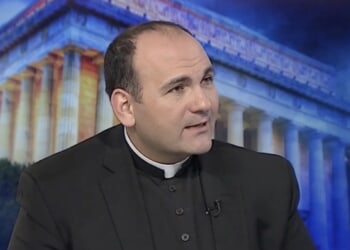Ben Knight is a former civil servant turned Parliamentary Researcher, who embarked on a three-year career in adult social care at the beginning of the pandemic. He has since worked in sales.
Like millions of Britons, I depend upon the NHS for primary care. I am proud of the universal care delivered by the NHS. But for me, like those other millions, universal care has come to mean the universal experience of waiting. Waiting on hold, waiting for test results, waiting for an appointment that never comes.
The tragic daily lottery of the 8am phone-in and the soulless answering machine reporting that you are in “position 42” in the queue. The beefed-up GP surgery receptionist, medicine’s answer to the club bouncer, who tells you that she can’t squeeze you in until next Tuesday – and God help you if you have more than one issue to discuss.
There are few things in British life more revered than the National Health Service – and few in sorrier disrepair. The NHS remains, in theory, one of our nation’s crowning moral achievements: a health system founded on the noble conviction that care should depend on need, not wealth. Today that ideal is being quietly strangled by dysfunction. And the principal danger to our healthcare is not that the NHS will be sold, but that it will sink.
The front door of our healthcare system is jammed shut. General practice is buckling under the weight of demand. Once the proud parish of family medicine, the GP surgery has become a fortress of online forms and phone lines. Patients bounce between 111, their local surgery, walk-in centres and A&E wards. If you work full-time, it is perilously difficult to be seen. And the myth of a named GP responsible for your care has become an empty parable: I have no idea who mine is, much less do I know if I’ve ever actually seen them.
The next Conservative government must throw open the front door of primary care, and start by admitting that the model we inherited from the 1940s is not fit for the 2020s. The GP registration system, where routine care can be provided only by a specified practice and where doctors are paid according to patients kept on the books, is a relic of ration-book Britain which traps patients by postcode, rewards mere existence over responsiveness or results, and pays a premium for systemic inertia.
Conservatives should champion the creation of a single national gateway to primary care – an NHS Direct 2.0 which exists via one platform, one phone number, and one app through which every patient can access help 24 hours a day and 7 days a week.
No more holding queues, no more Kafkaesque phone systems, no more pleading for callbacks. Through this unified system, patients could book instant virtual consultations, receive triage and advice, and, where necessary, be directed to an in-person appointment at any participating surgery near home, work, or wherever is most convenient.
Under this model, GP surgeries would be paid per consultation, not by registration, aligning incentives with service. The dead hand of geography would be lifted from the patient’s right to choose. This is not privatisation; it is liberation – restoring the NHS’s founding promise of equal care for all by giving individuals genuine agency within it.
Request an appointment through an app or phone-line, get a virtual appointment within minutes with any GP in the land, and go to any convenient surgery if you need to be seen in person: billing per consultation, with a premium for overnight or weekend service, rather than per name on a list.
Partnered with this innovation should be wholesale reform of NHS commissioning. The government has already abolished NHS England: Conservatives should now advocate that it abolish the alphabet soup of local commissioners — CCGs, ICBs, and whatever inevitably succeeds them – which have produced only a national lottery of care, where treatment depends less on need than on postcode and the specific services supported in any given area.
The solution is clear: abolish the layers, centralise commissioning, and redirect billions into front-line services. National procurement could save hundreds of millions annually, while the abolition of redundant local boards could free perhaps a billion pounds. Conservatives know that true compassion is measured not in management charts but in minutes saved for patients, and that every pound wasted on administration is a pound stolen from healing. The same basket of services and treatments should be available to every British citizen – at any participating centre, from any nationwide provider.
A single front-door to NHS services which connects you with a doctor based on your needs, not your postcode; and a centralised commissioning model which guarantees the same access to care for all, at dramatically reduced cost.
The cost savings should be used to implement a new absolute and inviolable guarantee: elective treatments will be delivered within 18 weeks, or the patient may go private at the NHS’s expense. No more excuses. No more endless deferral of pain and promise alike. The guarantee would force efficiency through accountability.
We must also challenge the father-knows-best instincts of the healthcare sector. quiet cruelty of postcode rationing. If a treatment or medicine is approved nationally, indicated for a condition being treated and not contraindicated by any other condition or treatment, then every patient should have the inalienable right to request it. If a patient feels that bupropion would serve them better than citalopram, and there is no medical reason that the patient cannot try it, NHS doctors should acquiesce rather than obfuscate.
Modern Britain is mobile, digital, and impatient with mediocrity. Yet its health system still behaves like a mid-century utility. The NHS should be as easy to navigate as online banking, and as flexible as modern travel. Emerging giants in the banking sector like Revolut and Monzo have proven that the bank of the future is not on your high street: it’s in your pocket. The NHS, similarly, should not restrict patient choice through a model of systems and bricks and mortar. Your doctor today should be accessible via your pocket too: and so should suitable treatment.
These reforms would not dismantle the NHS. They would rebuild it around its founding moral purpose – care for all, but with 21st-century means. The goal is not a monument to mid-century socialism, but a modern service powered by competition, digital access, and personal choice.
This is the conservative vision of healthcare. Britain does not need a new creed for the NHS. But it does need a new model of delivery. With the courage to unclog, unshackle and unleash,
Conservatives can become the guarantors of a promise first made by Aneurin Bevan.
There is no longer any need for a designated family doctor: in most cases, it is already a myth. Instead, every Briton should have an on-demand personal doctor: immediate access, fair access, and effective access.








![Florida Officer Shot Twice in the Face During Service Call; Suspect Killed [WATCH]](https://www.right2024.com/wp-content/uploads/2025/12/Inmate-Escapes-Atlanta-Hospital-After-Suicide-Attempt-Steals-SUV-Handgun-350x250.jpg)








